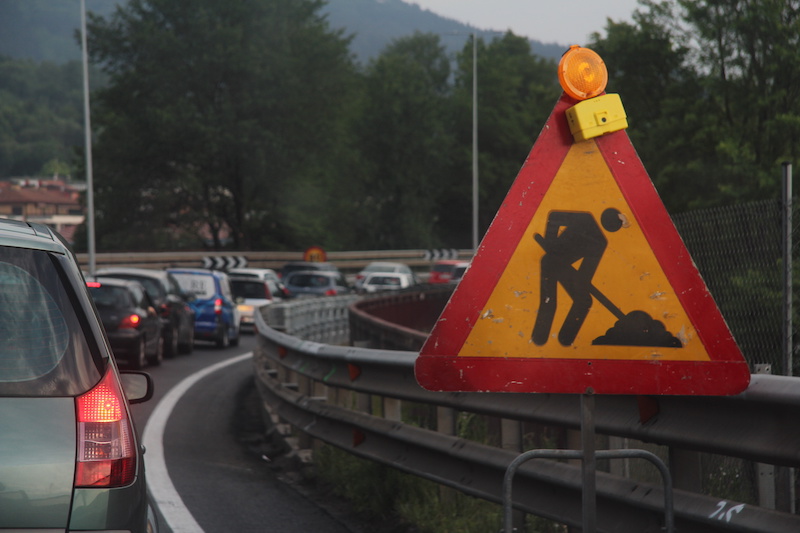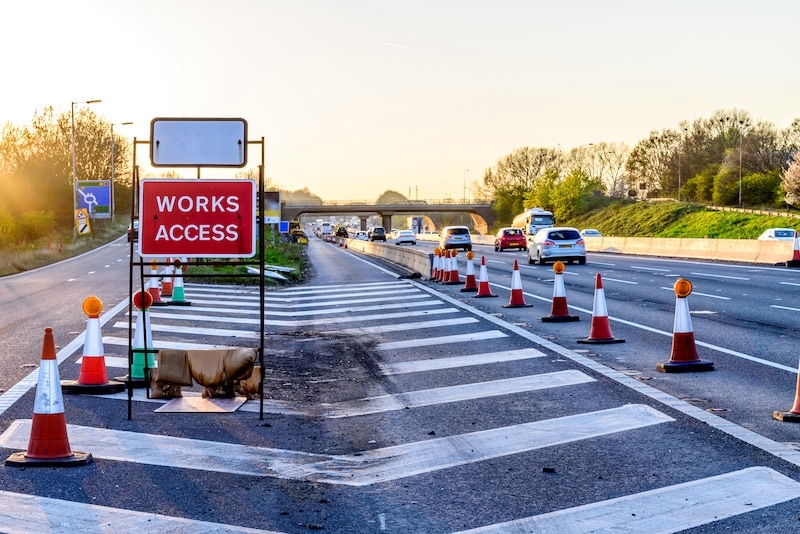Five Key Challenges For Highways In 2022 and Beyond
Blog-October 28, 2022
The UK’s Highways sector is one of its most vital and valuable assets. But from improving safety to delivering on climate targets, the sector faces a number of challenges.
As a proud supplier to many key highways projects, we explore five key trends in this article that will define the highways sector over the next year and beyond.

1. Project delays
A combination of planning delays and a pause on the roll out of smart motorways has led a large number of National Highway’s enhancement projects to be at risk of being deferred or dropped. According to Highways Magazine, the percentage of schemes at risk of missing an SOW commitment increased from 9% in 2020 to 22% last year.¹.
How these delays are resolved is unclear, but it will undoubtedly place pressure on National Highways to demonstrate its ability to deliver; the Office of Road and Rail (ORR) has warned that the company must prove it has “robust risk mitigations” in place.²

2. New safety recommendations
Road accidents are said to cost the UK economy and NHS £30 billion each year.³ And while lockdowns brought about a large decrease in the number of accidents on the UK’s roads, recently published numbers have shown a return to pre-pandemic rates.⁴
The government has responded with the launch of The Road Safety Investigation Branch,⁵ which will provide independent recommendations on how the country’s roads could be made safer and incorporate new technology more effectively. This will likely spur on many high-value projects in the coming years, requiring innovative mobile welfare units.

3. Innovative technology
At the beginning of 2022, the UK government announced that no more all-lane running smart motorways would be built until the concept’s safety could be proven⁶. This dealt a real blow to those who had claimed digital technology would transform roads in the coming years. But there is still reason to expect digital to be a significant part of future projects.
One key way technology will be used in highways moving forward is through design and maintenance. National Highways is already looking to leverage digital to produce a safer and more efficient construction process⁷. The result may be a very large improvement in the output of the sector.

4. The rise of social values
Most industries have seen an awakening on issues of social justice in recent years. The highways sector is no different, and we are just beginning to see how this will be realised in the coming years.
National Highways recently published its Social Value Plan⁸, which outlines how the company will support positive social change. This speaks to a larger trend, where highways businesses race to show their progress in relation to social values⁹ and local councils increasingly factor social value into their procurement decisions¹⁰.
To promote diversity, companies in the sector should consider ways to improve on-site welfare. Providing their workers with innovative mobile welfare units that provide space and comfort will help improve morale and encourage employment interest from a broader range of talent.

5. Reducing carbon emissions
In July 2021, the UK government published its Transport Decarbonisation Plan¹¹ – a guide to helping the country’s transport networks meet net zero targets. From embracing electric vehicles (EVs) to encouraging the use of public transport, this will be a defining challenge for the highways sectors in the coming decade.
For industry contractors, this is more than just an indication of the kinds of projects they will be working on; it is also a call to arms for them to reduce their own emissions.
The Department for Transport (DfT) recently argued that fleets played a vital role in overarching net zero efforts. While road vehicles produce more than 90% of emissions, there is still an urgent need for strategic equipment such as mobile welfare units and mobile welfare vans to be as eco-friendly as possible¹².
As net zero deadlines grow closer, contractors may be able to improve their chances of landing valuable contracts by introducing more environmentally friendly equipment – such as hybrid-powered mobile welfare units. This will involve ensuring they have the right supplier partnerships in place to source such vehicles.
2.https://www.highwaysmagazine.co.uk/National-Highways-risks-falling-behind-on-enhancements/10791
3.https://www.gov.uk/government/news/government-launches-countrys-first-ever-investigation-branch-focused-on-road-safety
4.https://www.highwaysmagazine.co.uk/Road-deaths-rise-as-lockdown-reset-fails-to-materialise/10918 5.https://www.gov.uk/government/news/government-launches-countrys-first-ever-investigation-branch-focused-on-road-safety 6.https://www.bbc.co.uk/news/business-59956911 7.https://nationalhighways.co.uk/our-work/digital-data-and-technology/digital-roads/
8.https://www.highwaysmagazine.co.uk/National-Highways-publishes-social-value-plan/10938
9.http://www.infrastructure-intelligence.com/article/jun-2022/kier-highways-sets-industry-standard-social-value
10.https://mag.publicsectorexecutive.com/articles/social-value-in-highways-procurement 11.https://assets.publishing.service.gov.uk/government/uploads/system/uploads/attachment_data/file/1009448/decarbonising-transport-a-better-greener-britain.pdf
12.https://www.highwaysindustry.com/fleets-essential-to-plans-to-decarbonise-uk-road-transport-says-dft/